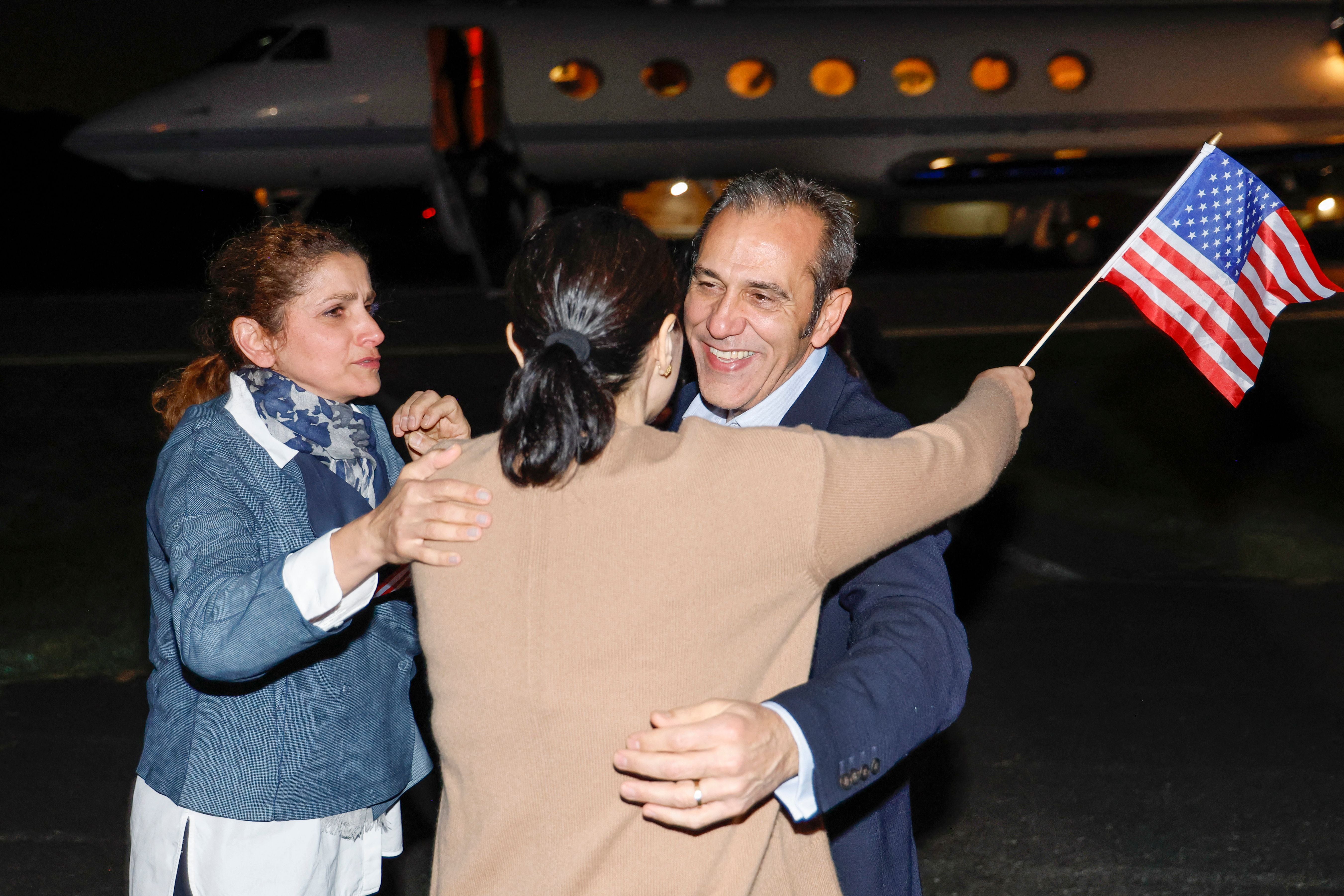American recounts ‘psychological torture’ in Iran prison after being freed in swap
Emad Shargi, 59, was freed back in September along with four other Americans as part of $6bn deal
Your support helps us to tell the story
From reproductive rights to climate change to Big Tech, The Independent is on the ground when the story is developing. Whether it's investigating the financials of Elon Musk's pro-Trump PAC or producing our latest documentary, 'The A Word', which shines a light on the American women fighting for reproductive rights, we know how important it is to parse out the facts from the messaging.
At such a critical moment in US history, we need reporters on the ground. Your donation allows us to keep sending journalists to speak to both sides of the story.
The Independent is trusted by Americans across the entire political spectrum. And unlike many other quality news outlets, we choose not to lock Americans out of our reporting and analysis with paywalls. We believe quality journalism should be available to everyone, paid for by those who can afford it.
Your support makes all the difference.An American businessman released after five years in an Iranian prison has broken his silence about the “psychological torture” he endured during his captivity.
Emad Shargi, 59, was freed back in September along with four other Americans held captive in Tehran as part of a deal with the US to unfreeze $6bn in oil proceeds.
Access to that money has since been suspended after an agreement between Qatar and the Biden administration in the wake of the Hamas attack on Israel amid questions about Iran’s role in the planning of the bloodshed.
Mr Shargi and his wife, who are both Iranian-Americans, moved to the country in 2016 when their grown-up daughters left for university to experience life there.
He says that in April 2018 15 armed agents from the Islamic Revolutionary Guard arrived at their home, arrested him and took him to the city’s notorious Evin Prison.
While behind bars, Iranian officials accused him of being an American spy, which he called a “ludicrous” allegation.
He told 60 Minutes in an interview to be aired this Sunday, that interrogators tried to scare him into a confession by threatening him with waterboarding, electrocution and hanging.
“They took me to a room. They told me to strip naked. They gave me some blue garbs. They told me, ‘This is the end of the line for you, and most likely you’ll never see the outside world,’” he told CBS News chief foreign affairs correspondent Margaret Brennan.
“‘From now on nobody will address you by your name. You are a code now.’ 97-0-10 was my code.”
Mr Shargi says that was when guards turned to “psychological torture” on him.
“They take you to a very small room. And then they throw a giant of a human being in there, who proceeds to hit you, to push you around, to threaten to kill you,” he said.

“And then the good cop comes in, and he says, ‘Look, I can put a stop to this. You just need to confess. You have to confess that you are a spy,’ which is ludicrous.”
For the first eight weeks of his imprisonment, he says he did not know if his wife had also been taken into custody, with his interrogators using the screams of women in the prison against him.
“‘I [didn’t] know if she was being tortured. I didn’t know if she was being raped. I [had] no idea,” he said. “That is its own form of torture.”
Mr Shargi says his father had warned him against moving to Iran, saying: “Emad, you don’t know this country. People like you with dual nationalities, they pick these people up once in a while for whatever use they have for them.”
And he says that what he has learned from his harrowing experience is “Listen to your dad.”

Join our commenting forum
Join thought-provoking conversations, follow other Independent readers and see their replies
Comments